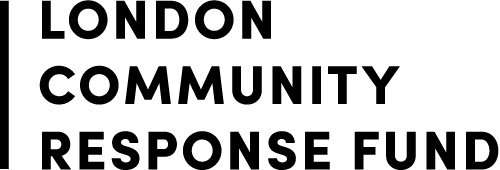Mental health & wellbeing in schools
|
“In order to help their pupils succeed; schools have a role to play in supporting them to be resilient and mentally healthy” Department of Education, 2014 It is reported that 1 in 10 children aged 5 to 16 years old experience issues with mental health, with up to half of those experiencing symptoms by the age of 14. Therefore prevention and early intervention is key. In a survey of 338 schools last year, it was revealed that 55% of schools had experienced a large increase in cases of anxiety and stress amongst young people. Family breakdowns, exam stress at school, body image issues, the prominence of social networking, and bullying on and offline are reported as causes of this rising problem. The innate qualities of the arts should not be underestimated for their value in helping enrich the lives of people of all ages. The All-Party Parliamentary Group on Arts, Health and Wellbeing Inquiry found that people who take part in the arts are 38% more likely to report good health, and after engaging in participatory arts activities, 82% report greater wellbeing. This 2017 report demonstrated that the arts make an invaluable contribution to a “healthy and health-creating society” and recommended cross-governmental commitment to the arts to help prevent, as well as treat, mental and physical health issues. The arts can inspire and motivate children’s creativity – allowing them to find their voice and open up their imagination – as well as give them a space to explore challenging themes more openly outside of the classroom environment. It can also build skills such as confidence, resilience and self-esteem. In June 2016, Artis attended the Mental Health Support in Schools conference which focussed on how schools can work together with the NHS, voluntary sector and local authorities to improve the provision and delivery of services that support mental health With the Government’s commitment to invest £1.4 billion in children’s mental health services over the next 5 years, schools and organisations came together to discuss what we can all do to help tackle a rise in mental health issues in schools. Dr Pooky Knightsmith, educationalist and mental health ambassador, spoke about the importance of prevention and early intervention as a way to develop a culture of healthy coping and awareness at school. Dr Knightsmith also discussed how prevention and early intervention, through promoting positive mental health and wellbeing, was much more cost effective than the associated costs of tackling mental health issues once they’ve developed. Dr Knightsmith’s top tips for prevention in schools were:
In the World Health Organisation’s report on Prevention of Mental Health Disorders it discusses activities that ‘build emotional resilience, problem-solving abilities and self-confidence’ as being proven to reduce the onset of mental health disorders in children. This evidence has developed alongside a growing understanding of the impact that the arts can have on health and wellbeing in schools. Arts Council England’s 2014 Evidence Review reported that levels of subjective wellbeing are greater amongst those with higher arts and cultural engagement, and that participation in the arts can reduce social exclusion and isolation as well as increase cognitive abilities. In Artis ’ sessions, our children are developing the intrinsic ‘soft’ skills of expression, self-awareness, self-esteem, resilience, inclusion, confidence, and peer engagement, whilst reinforcing their classroom learning. Giving children a space to be creative each week means that they are not only building their curriculum knowledge, helping boost academic results, but they are also developing coping mechanisms for life in and out of school. Our Artis Specialists also provides opportunities for children to focus on themes and topics such as relationships, bullying and community through our Artis Bounce programme. Having an Artis Specialist in schools, whether they’re working across the whole school or with specific nurture groups, can support the wellbeing of children and is an effective way to aid positive mental health through prevention. If you’d like to discuss how Artis can support your aims for positive mental health and wellbeing at your school then click here to find out about our Artis Bounce programme. You can also contact us on 0207 324 9880 or email dingdong@artisfoundation.org.uk
“Riverside Junior School in Hebden Bridge has used Artis this year and have been delighted with the provision delivered on a weekly basis. The Artis Specialists clearly enjoy working with the children and the children, in turn, really enjoy and look forward to their time with the Artis staff. They have built confidence to have a go, independence and self-discipline in the children this year through their teaching of music and drama. Using Artis was a good decision and I can recommend them fully.” Cathy Greenaway, Executive Head Teacher, Riverside Junior School
To find out more about mental health support that is available for schools, please visit Place2Be’s website. Place2Be is a national charity providing emotional support to children in schools. |
08 Feb 2018 |
















